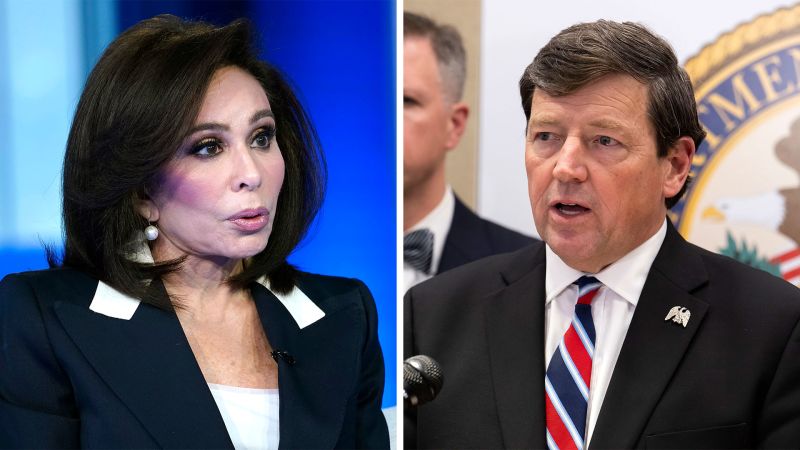The political landscape in Washington, D.C., is poised for yet another significant shift as the U.S. Attorney’s Office sees a transition in its leadership. With a change from one controversial figure to another, many hope for a new era of relative calm and professionalism. The incoming attorney, Jeanine Pirro, a former Fox News host, has officially taken her oath of office and is now at the helm of one of the most powerful federal prosecutorial offices in the nation. Her appointment is under scrutiny, considering the turbulent circumstances surrounding her predecessor, Ed Martin.
Ed Martin was embroiled in controversy prior to his nomination being withdrawn. His tenure was marked by inflammatory remarks, including praise for an alleged Nazi sympathizer, a denial of violence during the U.S. Capitol riot, and disparaging comments directed at law enforcement officers who defended the Capitol on that fateful day. These actions ultimately cost him his position and led to intense scrutiny on the office’s credibility and professionalism. With Pirro stepping in, employees within the U.S. Attorney’s Office in D.C. are apprehensive but hopeful that she will bring a more stable and focused leadership style compared to Martin’s high-profile and contentious approach.
Despite the doubts surrounding her public persona—loud and assertive from her days on cable news—some employees expressed optimism that Pirro would allow the office to return to a more functioning state. Under Martin’s management, there were concerns about the constant media focus on his statements, leading to distractions that hindered the prosecutors’ ability to litigate cases effectively. A light-hearted official remarked that they hoped Pirro would shift her focus towards television appearances, minimizing interruptions to the vital work being conducted behind the scenes.
Pirro’s background as a former judge and district attorney in Westchester County, New York, raises questions about her capacity to navigate the complexities of the role effectively. She has not held a position within the justice system since 2005, when she transitioned to a career in television. Alongside her close ties to former President Trump, many prosecutors harbor fears that Pirro may adopt a similar approach to Martin’s tenure—one that some described as merely swapping one controversial leader for another without a substantive change in direction.
In an interesting turn of events, even as Martin departs from his role as U.S. Attorney, he remains present in the public eye. His aggressive and publicized strategy during his short tenure garnered national attention, and despite Republican opposition to his nomination, he retains a leadership position within the Department of Justice (DOJ). In his new role leading the DOJ’s Weaponization Working Group, Martin aims to maintain a highly visible presence.
In a news conference, Martin detailed the objectives of his new group, which focus on reviewing and scrutinizing law enforcement actions taken under the Biden administration. He has signaled an intent to take a public-facing approach as part of this initiative. His stated goals include investigating the work of Special Counsel Jack Smith, evaluating the prosecutions related to the January 6 Capitol riot, and examining whether there have been instances of governmental targeting—such as claims that the Biden administration targeted Catholics.
Martin’s plans do not just involve information gathering; he has emphasized an intent on calling out powerful actors, even if legal proceedings cannot be initiated against them. He commented on the need for accountability and public shame for those engaging in wrongdoings related to their conduct in office.
Despite the transition from Martin to Pirro, the future direction of the D.C. U.S. Attorney’s Office and the DOJ appears uncertain, encapsulated in the sentiments of those within the current judicial landscape. The potential influence of political loyalties and public perceptions continues to loom large, fundamentally affecting how justice is administered in the nation’s capital. With new leadership, the hope is that clarity and integrity will prevail, allowing the U.S. Attorney’s Office to function effectively in its critical role for federal prosecutorial duties.



